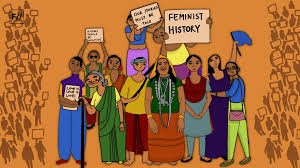Pareeshe Fatima
Political music isn’t just catchy tunes and rhythmic slogans; it’s a potent weapon in the electoral arsenal, wielding the power to sway emotions, solidify identities, and ultimately influence votes. Understanding its importance requires a critical dive into its multifaceted impact.
Mobilizing and Motivating: At its core, political music serves as a powerful tool for mobilization. Upbeat tempos and rousing choruses energize supporters, instilling a sense of collective purpose and encouraging participation. Think campaign rallies pulsating with anthems that unite audiences under a shared cause, propelling them to the polls.
Shaping Narratives and Framing Issues: Beyond mere mobilization, political music actively shapes narratives and frames issues. Lyrics become slogans, weaving compelling stories that resonate with specific demographics. They simplify complex political landscapes, highlighting key promises and painting opposing candidates in specific lights. A cleverly crafted song can effectively define the campaign’s message and leave a lasting impression on voters.
Building Identity and Fostering Solidarity: Political music also plays a crucial role in constructing and reinforcing group identities. Anthems celebrating shared struggles, values, or cultural backgrounds foster a sense of solidarity among supporters. This emotional connection strengthens the bond between voters and candidates, creating a loyal base and potentially attracting undecided voters who identify with the song’s message.
Emotional Bypasses and Oversimplification: However, the persuasive power of political music comes with its own set of challenges. Its ability to bypass critical thinking through emotional appeals can lead to oversimplification of complex issues. Critics argue that catchy tunes and cleverly phrased lyrics can mask factual inaccuracies or gloss over nuanced policy details, potentially misleading voters.
Manipulation and Polarization: Furthermore, the persuasive power can be misused for manipulative purposes. Demeaning or demonizing lyrics targeting opponents can exacerbate political polarization and contribute to an unhealthy electoral climate. Additionally, exploiting pre-existing biases or social divisions through music can further fragment the electorate, hindering constructive dialogue and compromise.
The Art of Balance: Utilizing Music Responsibly:
Therefore, the importance of political music lies not just in its effectiveness, but also in its responsible use. Campaign strategists must strive for a balance between emotional appeal and factual accuracy, ensuring that music informs and motivates without resorting to manipulation or divisiveness. Artists and musicians contributing to political campaigns should also be mindful of their power and strive to create music that promotes constructive dialogue and strengthens democratic processes.
Ultimately, political music remains a powerful tool in the electoral landscape, capable of both mobilizing and informing voters. Recognizing its strengths and limitations, and utilizing it responsibly, can ensure that it contributes positively to a vibrant and informed democracy.
Hence, political music is more than just a campaign soundtrack; it is a powerful tool for shaping public opinion, mobilizing voters, and influencing the outcome of elections. While its effectiveness is undeniable, it is essential to wield this power responsibly, ensuring that music serves as a force for unity and constructive dialogue, rather than division and manipulation. By critically analyzing the role of political music in elections, we can ensure that its power is harnessed for the betterment of democracy and the public good.
Please, subscribe to the YouTube channel of republicpolicy.com
















